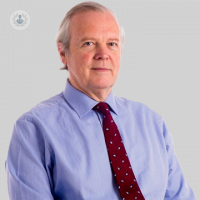Is our idea of grief outmoded?
Escrito por:Grief is usually a normal and natural response to the loss of a loved one. But it can occur with many types of loss (such as grief over losing one's work, home, health, freedom and of course pets). It can be far from straightforward, in which case one may need professional help from a counsellor, psychologist or psychiatrist.

What are the stages of grief?
Our brains are designed to filter extremes and manage intolerable problems at a pace and in ways that we can handle using what is called psychological defences. Thus, we may initially react with shock and disbelief, and then with great emotion. This naturally elicits caregiving and love from those around us. As time and "pangs of grief" pass, we can re-engage in the healthy demands of life and increasingly recall comforting memories whilst processing the inevitable difficult recollections. We can find kindness within and around us, and renewed energy and commitment to the future.
Is there a normal way of experiencing grief?
Fortunately, there are many voluntary support services to help on the way, such as CRUSE and Compassionate Friends. Life itself is replete with the natural allies of friends, family, faith, nature, culture, duty and time. However difficult, we all have the potential to learn, grow and become stronger and more integrated within ourselves and with life at large. Sadly, it does not feel like it at the time.
Less common, but actually very normal experiences can include hearing, seeing or feeling the lost one. These can indeed by comforting experiences but, if they are severe/persistent or very distressing, it is wise to seek skilled help.
What can complicate the picture or make the journey more difficult?
The grieving process can also become blocked or extreme and this is called complicated, pathological or traumatic grief. This can occur with losses that are sudden, unexpected, socially unacceptable (such as that of a very private or even secret relationship), or especially tragic such as the loss of a child. Or unspeakably difficult such as loss involving violence. Earlier unresolved losses and traumas may occasionally be powerfully reactivated without us even being aware of the connection.
Dealing with grief will involve times when the realities of death have to be faced. The mourning process and participation in our personal and cultural rituals can give us the courage to do this but understandably it can be too overwhelming to face and phobic avoidance or discomfort with the healthy expression of difficult feelings (e.g. rage) may get in the way. A stiff-up-a-lip and old-fashioned "rules" (e.g. that men don't cry or children should not participate in funerals) can be very unhelpful. Creative outlets, on the other hand, can be wonderfully helpful, for example, through art, writing or gardening.
Most people who suffer grief can return to normal work and activities within days or weeks without any ill effects. At the other end, it is difficult to say that grief is ever fully "resolved", reappearing even years later out of the blue or at anniversaries or with later losses or reminders. But a serious blockage of the "grief work process" will make it impossible to reinvest emotional energies in future projects and relationships. Life itself is put on hold, becomes stale and lacking in vitality. Or it may become jagged, with inner conflicts, irritability, sleeplessness and agitation. Very rarely, the opposite occurs using a different form of self-protection called a manic defence. This is a psychological way of pretending that we are somehow invulnerable. If a person has had a previous mental illness, a serious loss can occasionally trigger a relapse requiring medical attention if not handled sensibly.
When should a person get support with their grief?
What can then be done? Consider seeking professional or skilled help if depression, anger or despair starts to take over. These may be symptoms of a clinical depression or other psychiatric illness. And seek help if an understandable attempt to relieve the pain of loss, such as the use of alcohol, painkillers or illicit drugs, becomes addictive or harmful in its own right. Allies such as these can soon become false friends.
A wise understanding of the stages and tasks of grief can also be very helpful and excellent books and websites are available. A classic and approachable outline on "grief counselling and grief therapy" is that of William Worden. This can be especially of value to anyone trying to understand and support those who are really struggling. Carers of the bereaved may be the ones who actually need the helping hand.


